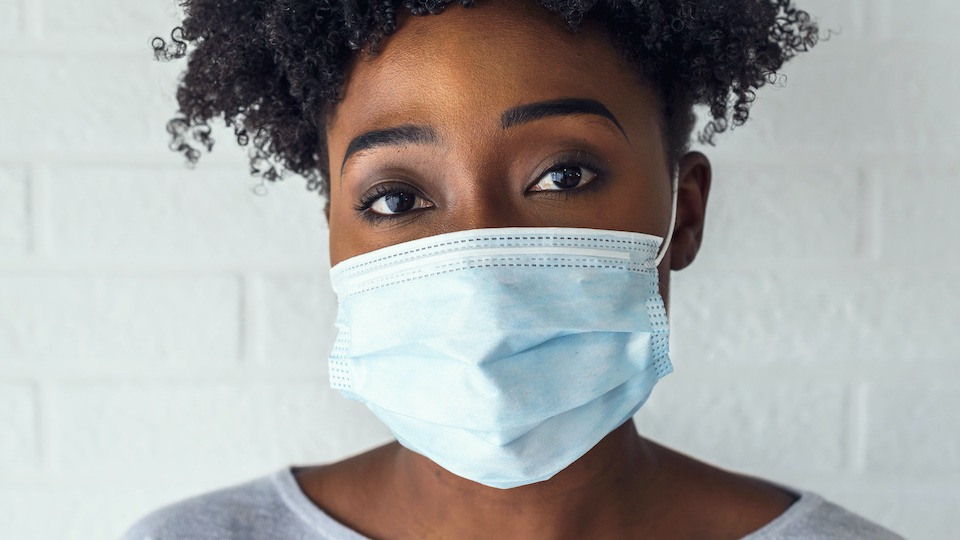As COVID-19 continues to spread, some businesses have chosen to reopen. As a result, many establishments are suggesting or requiring customers to wear masks. However, since much about the pandemic is still unclear, some Americans are questioning whether masks are a necessary precaution. The confusion, it seems, stems from how the virus spreads and the different functions of masks available — respirators vs. surgical and homemade masks. Here’s what you really need to know about wearing a mask.
Just because he doesn’t look ill, doesn’t mean he isn’t
First and foremost, it’s essential to understand that people can spread the virus before showing any symptoms. This means that the healthy-looking man standing too close to you at the hardware store could be contagious — and not even realize it. This scenario explains, in part, why almost five million people worldwide have been affected by COVID-19 in less than four months. So, why weren’t masks recommended at the onset of the pandemic? Unfortunately, in the beginning, experts didn’t realize how the virus could be spread before symptoms appeared.
Beyond social distancing, which some people are now disregarding, masks may be the only thing that can slow the spread. But will wearing a mask protect you from getting infected or protect others from being infected by you? In addition, which mask works best to slow the spread — N95 respirators, surgical masks, or homemade masks? Let’s look further into the masks themselves.
Difference between the N-95 respirators and surgical masks
During this pandemic, masks, in general, are used by healthcare workers, front line workers, and the general public to prevent the spread of infection or illness. The N95 respirator is a particulate, filtering, facepiece respirator. It filters almost 95 percent of airborne particles but is not resistant to oil, according to The U.S. Food and Drug (FDA).
The N-95 is a personal protective mask that is used to protect the wearer from airborne particles and anyone carrying the virus. This mask, however, should only be used by healthcare workers and should not be used by the general public, according to the Centers for Disease Control and Prevention (CDC). The N-95 masks are in high demand and must be held in reserve for health care workers and other medical first responders.
Surgical masks, on the other hand, are not meant to protect the wearer, they’re meant to protect other people instead. For instance, if you are wearing a surgical mask and sneeze, cough, or even breathe out droplets, your mask will protect those around you. So, it’s important to note that wearing a surgical mask will not prevent you from getting coronavirus.
That said, The U.S. Food and Drug Administration has not approved any type of surgical mask that protects explicitly against coronavirus. However, surgical masks may provide some form of protection when respirator masks are not available. Surgical masks do not entirely filter small particles from the air, suggests the CDC, nor do they prevent leakage around the edge of the mask when the user inhales.
What about homemade cloth masks?
Similar to the surgical mask, cloth masks are worn to protect others in case the wearer has coronavirus. They are not meant to protect you from others carrying the virus. But like the surgical masks, they do offer some protection against the virus. Cloth masks are generally inexpensive to make and can be worn many times when laundered after each use. If you choose to wear cloth masks:
- Make sure the mask fits snugly yet comfortably against the side of your face.
- Secure with elastic bands or ties around the ears.
- Make sure it is made with several layers of fabric.
- Make sure there’s enough room to breathe without any restriction.
- Use a material that’s strong enough to endure washing and drying without changing or damaging the shape.
If you choose not to purchase a cloth mask, the CDC offers instructions on how to make your own, if necessary.
Which mask should be worn if you’re infected?
If you are infected with COVID-19, you should be wearing either a surgical mask or a cloth mask. Since N-95 respirator masks are in critical shortage and should, therefore, be reserved for health care providers, the CDC recommends either surgical or cloth masks for the public use.
Masks may help prevent the spread of coronavirus; however, you need more than a mask. Face masks should be combined with other preventive measures, like social distancing and frequent hand-washing. By doing so, you’ll help slow the spread of COVID-19.
Tips on wearing your mask
When wearing your mask, the Mayo Clinic suggests you do the following for proper protection:
- Place your mask over both your mouth and nose.
- Use ear loops to secure the mask around the ears or tie it behind your head. Make sure it fits snuggly.
- Never touch your mask while wearing it.
- If you accidentally do touch your mask, wash your hands or use sanitizer immediately.
- When taking your mask off, untie it, or lift it from your ears without touching the front of the mask — or your face.
- Make sure to wash your hands immediately after removing your mask.
Precautions for wearing a mask
- Don’t put a mask on anyone who has trouble breathing.
- Don’t put a mask on anyone who is unconscious or otherwise unable to remove the mask by themselves.
- Never put a mask on a child under age two.
- A face mask is not a substitute replacement for social distancing.
As businesses reopen and people emerge from isolation, masks can play an important role in helping prevent the spread of coronavirus, especially from those who show no symptoms. In fact, the more people wearing masks, the less chance a second viral-wave will hit and push us back into isolation. Stop the spread, wear a mask.
-The Well Daily Team
